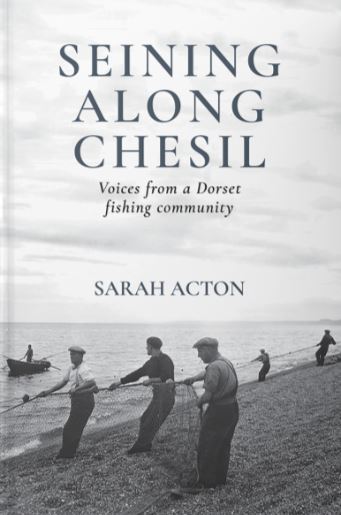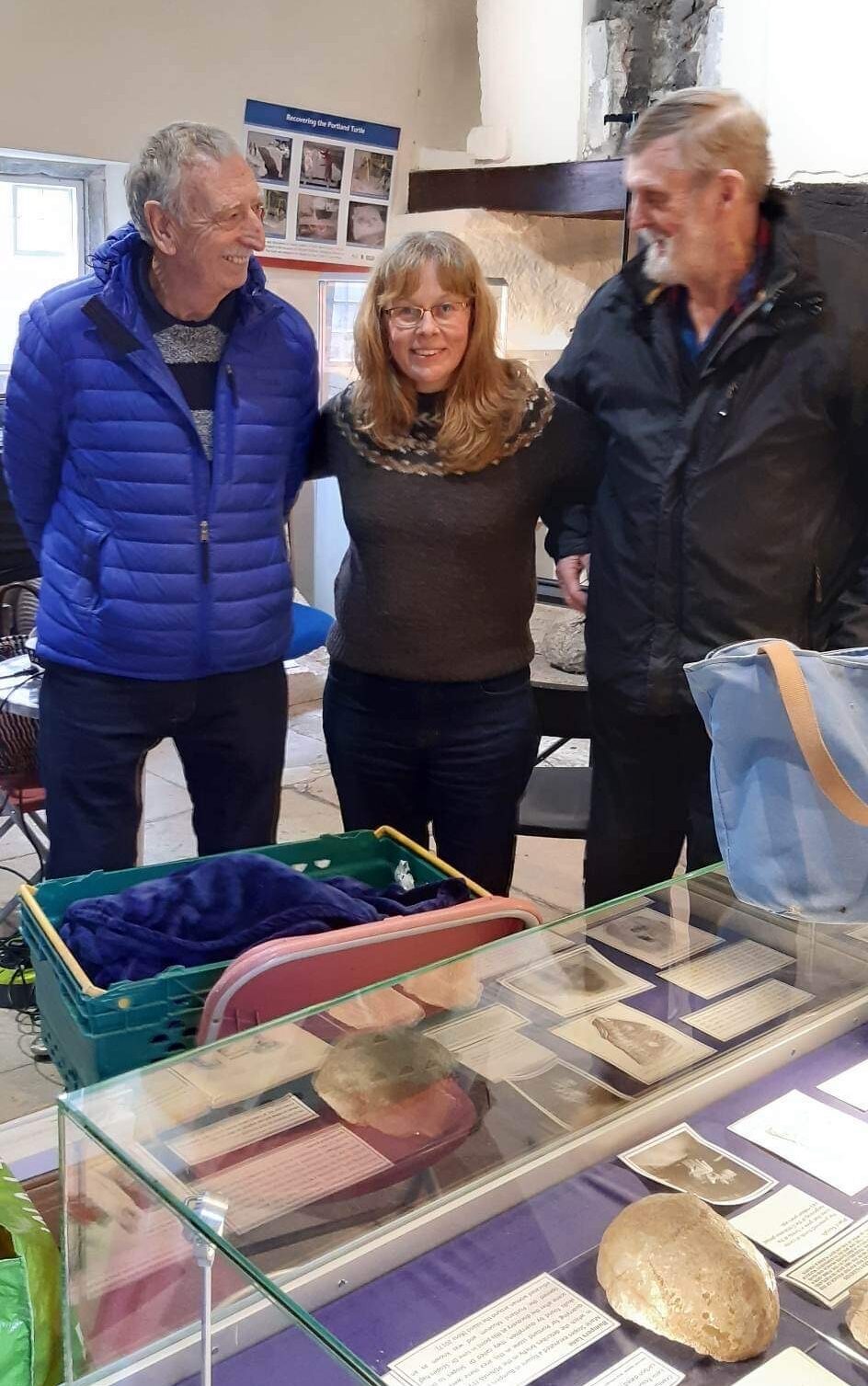In January 2024 Dorset History Centre will be undertaking two collections weeks and we will be closed to the public for this period.
Whilst staff and volunteers will be getting on with the important work we have to do during this period, we have a couple of guest blogs for our readers, starting with this one, from Sarah Acton…
—
I am a writer with a passion for portals and time shifts, using oral history in my creative practice and working with Dorset communities to explore memory of place and local identity as carried and held by both a place and people, passed from generation to generation. I listen for patterns and repetitions that keep communal memory alive as it jumps between tellers between decades. Empowering voices to tell their own story and acknowledging that the ghosting of everyday lives in a local landscape outlives forgetting if remembered and stored in folk songs, intergenerational gatherings and reminiscences. Memory is a powerful tool to shape our understanding of the past and self-mythologise our present.
Since childhood I’ve been inspired by this description of Alan Garner’s writing process in the Postscript of an old battered copy of The Owl Service which reads:
“The legend could have happened here. As I stood on the doorstep at night, thinking these things, an owl brushed its wings in my face. The sensation of finding, not inventing, a story continued. It was all there waiting, and I was the archaeologist picking away the earth to reveal the bones.”
Voices we record are often portals to a past-present tense that is still alive in its own multiple dimension, which is the place itself. So I physically listen to a place outdoors and use oral history research interviews to deepen connections for community and individual sense of identity and myth within the bigger story of the natural environment, and to inspire my own new place-writing, theatre and spoken word performances. At the core of the work there is joy in making connections. I both map and re-soundscape local areas with the same stories whose bones were buried there all along. Revealing the bones of the past reveals something about our own lives in the retelling. Interviewees often tell me that they haven’t spoken of fishing or stone quarrying (my two specialist interests) for many years, thinking perhaps that no one is interested. Running in-conversations and events to share these stories widely have sparked huge interest in local communities, and many ripple-effect reconnections.

For my book, Seining Along Chesil, I researched seine fishing traditions along Chesil beach from Portland to West Bay over three years, talking to hundreds of local people who remembered the industry. The book was published by Little Toller in 2022 and I continue to work closely with new and original contributors. I have since written a show about women fishers, commemorating the anniversary of the Great Storm of 1824, to be toured in 2024, plus a new spoken word commission for Common Ground and Sound Art UK. Both inspired by real histories and stories, always staying connected to contributors, communities involved, nature, place and energies from where the stories began.

I have recently deposited materials at Dorset History Centre, including documents belonging to Rod Condliffe, informal records from his Uncle Chum, who was a seine captain of the Park Wall fishing crew. The papers form a picture of mackerel seasons and numbers, seine crews and boats, local boat builders, net-makers, and relationships that shaped Chesil beach landscape and use. When Rod and I visited the archive in the spring of 2023, we learned that the constant humidity of the storage facilities mean that Chummy’s papers may survive another 100 or more years. Rod sadly passed away this year, and I am grateful he saw his legacy protected for the future.
Since depositing the Uncle Chummy Northover Collection, more items, photos and other materials have come my way, and the long-term commitment to the archaeology of Chesil stories continues. Meanwhile, these thoughts reveal more layers, that my practice as a writer and storyteller perhaps make me both the bones of the future carefully waiting to be found, and the archaeologist of the present.
In Underland, Robert Macfarlane writes of the archaeology of beneath surface spaces in the body of earth and in ourselves,
“Into the underland we have long placed that which we fear and wish to lose, and that which we love and wish to save.”
Dorset History Centre represents a deep-vaulted cave in which to save what we value and what we hope may be bread to feed the future. I am interested to open conversations about what duty this puts on us, what stories and whose voices we archive to be dusted off later by some unknown hand. At the same time remembering that we cannot be found as bones if we have not been buried somewhere safe. This takes active effort to gather materials, in partnership with the expertise of specialists to archive and protect. Chance is too careless in the business of speaking into the future.
—
To find out more about Sarah’s current projects, writing and shows next year, please visit www.sarahacton.co.uk
To buy Sarah’s book please visit https://www.littletoller.co.uk/shop/books/little-toller/seining-along-chesil-by-sarah-acton/

